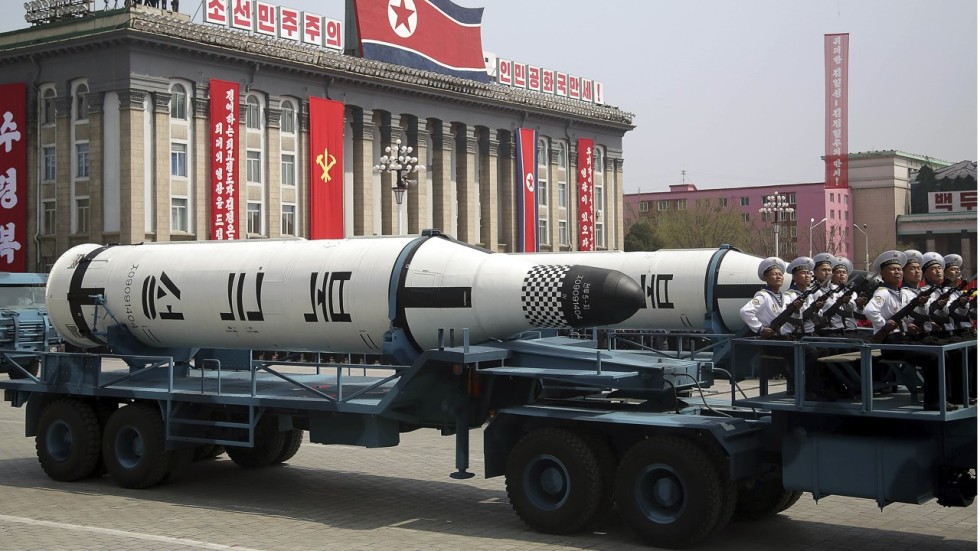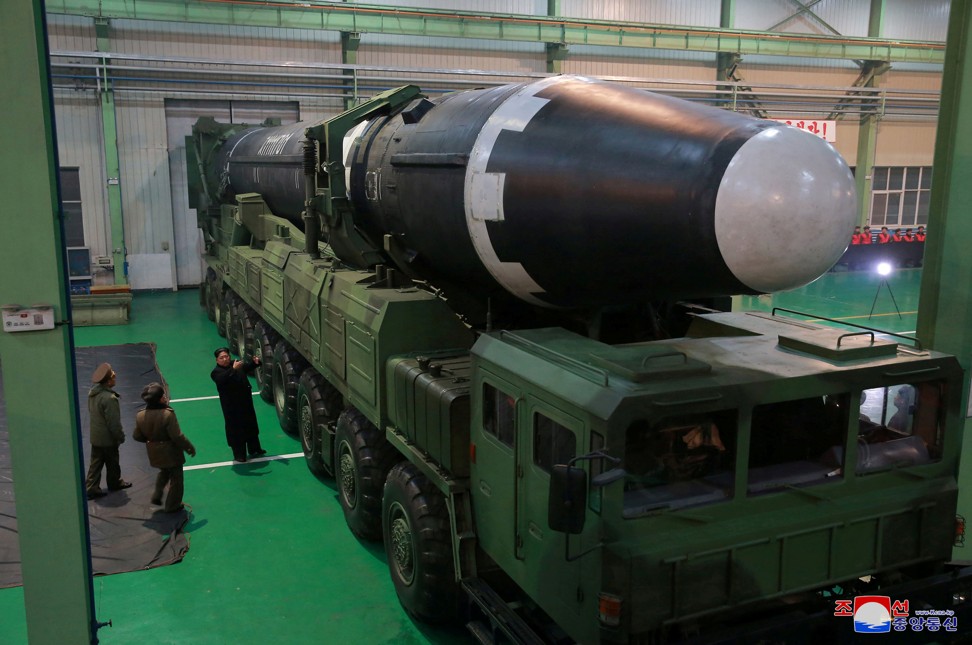
The surprise visit to Beijing by North Korea’s reclusive leader Kim Jong-un, and especially his comments suggesting he would be willing to denuclearise his country, has raised the stakes for his proposed meeting with US President Donald Trump, pundits say.
During his first overseas trip since coming to power seven years ago, Kim said he had taken the initiative to ease the tensions that had pushed the Korean Peninsula to the brink of a nuclear stand-off and put forward proposals for peace talks, Xinhua reported.
“If South Korea and the US respond with goodwill to our efforts and create an atmosphere of peace and stability, and take phased, synchronised measures to achieve peace, the issue of the denuclearisation of the peninsula can reach a resolution,” he was quoted as saying during his meeting with Chinese President Xi Jinping.
Kim Jong-un says he is ‘committed to Korean denuclearisation’ in Beijing talks
Kim’s commitment to denuclearisation, which both Beijing and Washington have demanded for years and was previously cited by Trump as a precondition for talks, did not appear in the official accounts of his brief but historic visit to China published by North Korea’s official Korean Central News Agency.
Pundits nonetheless believe his remarks may represent a shift in attitude, despite the fact that Kim and his US counterpart apparently have different understandings of the terminology.
“Even though North Korea and the US have different definitions of denuclearisation, it still helps to hear Pyongyang say the word because it keeps the window open for direct negotiations with Washington on ways to deal with each other’s security concerns,” said Duyeon Kim, visiting senior research fellow at the Korean Peninsula Future Forum in Seoul.
Zhou Chenming, a Beijing-based military expert, described Kim’s remarks as a calculated, conditional offer to seek alignment with Beijing ahead of his possible summit with Trump in May, while buying time to exact a better price for his cooperation with the international community.
Did Kim Jong-un’s China visit herald the return of the Beijing-Pyongyang alliance?
Unlike previous media reports that portrayed him as an impulsive and irrational despot, “Kim has proven to be a smart leader with tact and diplomacy who knows how to carefully choose his timing to ask for Beijing’s support at a time of China’s heightened trade tensions with the US,” Zhou said.
“While China may not offer any substantial assistance in light of the existing UN sanction regime, his latest remarks will at least buy him more time at the negotiating table with the US.”
Others, however, believe that Kim is extremely unlikely to give up his nuclear deterrent as he sees it as essential to the preservation of his regime, which is his top priority.
“[Negotiating] on nuclear weapons will increase North Korea’s bargaining power as it seeks a reduction in sanctions, but it is highly unlikely that it would ever completely give up its weapons,” said Shi Yinhong, director of the Centre for American Studies at the Renmin University of China and an adviser to the State Council, China’s cabinet.
But it might be willing to give up some of them, he said.
Kim Jong-un says he is ‘committed to Korean denuclearisation’ in Beijing talks
Lu Chao, director of the Border Studies Institute at the Liaoning Academy of Social Sciences in the northeastern China province adjoining North Korea, said denuclearisation would require long and painstaking negotiations involving several parties.
“And the issue will not be solved without China’s participation,” he said. “It requires cooperation between China and the US.”
White House press secretary Sarah Sanders said that Beijing had briefed Washington on Kim’s visit to China, adding that the statement included a personal message from Xi to Trump, though she did not elaborate.
Kim Jong-un and Xi Jinping share wine and smiles during North Korean leader’s landmark visit
Pang Zhongying, a senior fellow at the Ocean University of China in Qingdao, said that in Kim’s mind, denuclearisation referred to the Korean peninsula in its entirety, so “the nuclear weapons deployed by the US in South Korea should also be withdrawn”.
“Can the US really accept such a request? The chances of a significant breakthrough between Kim and Trump may be slim,” he said.
Keep up the sanctions against North Korea, former diplomats say
Zhang Baohui, an international affairs professor at Lingnan University in Hong Kong, said, however, that although the withdrawal of US troops from the Korean peninsula was part of Kim’s end-game, he was unlikely to raise it in his first meeting with Trump.
Instead, North Korea might demand the signing of a formal peace treaty to replace the Korean war armistice agreement signed over 60 years ago, and the normalisation of ties with the US, which would help end the country’s international isolation and reduce its reliance on China, Zhang said.
Meanwhile, in what appears to be another well-planned move by Beijing, China’s top diplomat Yang Jiechi is set to arrive in Seoul on Thursday for a two-day visit, which had been delayed to accommodate Kim’s visit.
Kim Jong-un wife’s fashion sense a hit with China’s public
The Politburo member is expected to brief President Moon Jae-in on Kim’s Beijing visit, ahead of the South Korean leader’s own meeting with Kim next month, the presidential office in Seoul said on Wednesday.
Sending Yang to South Korea was a sign that Beijing wanted to play a significant role in the ongoing diplomatic manoeuvring, Duyeon Kim said.
Additional reporting by Catherine Wong, Minnie Chan and Sarah Zheng








